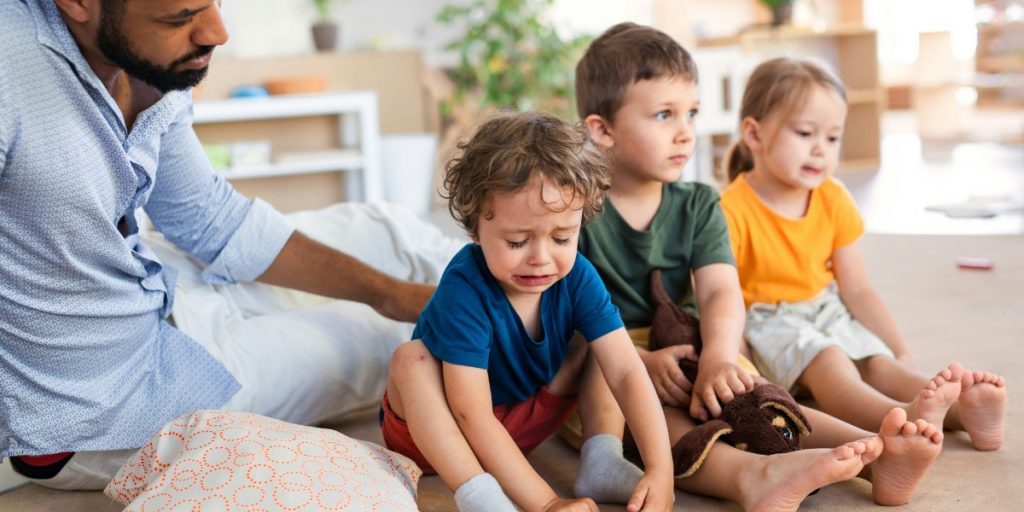Below, Ben Rein shares five key insights from his new book, Why Brains Need Friends: The Neuroscience of Social Connection.
Ben is an award-winning neuroscientist who has spent a decade studying the biology of social interaction. He is the chief science officer of the Mind Science Foundation, an adjunct lecturer at Stanford University, and a clinical assistant professor at SUNY Buffalo. He also teaches neuroscience to an audience of more than one million social media followers.
What’s the big idea?
Loneliness is a problem. Many of us feel this, and all of us are seeing it affect society. But why is isolation so harmful? Why are virtual interactions a poor substitute for getting together in person? What does our brain get out of spending time with a friend? The neuroscience underlying our social interactions adds a crucial component to conversations about the loneliness epidemic and what we can do about it.

1. Our brains are wired for connection.
What does it really mean to be wired for connection? In the ancient world, our ancestors faced tremendous challenges, including food scarcity and predators hunting them. Survival was challenging, but humans work together in groups very well. So, when it came to survival of the fittest, the most social humans were the fittest.
As a result, our brains have built-in social reward systems. That means when we connect with others, our brains send powerful signals involving neurotransmitters like dopamine, serotonin, and oxytocin, which make us feel good and want to continue socializing. This was the glue that kept us together millennia ago and, therefore, kept us alive. Our brains still have these systems, which means we have a lot to gain from socializing. This is what it means to be wired for connection. Our brains literally reward us for being around each other.
2. Our neurochemistry faces the challenge of a divided world.
We are facing a legitimate public health crisis around loneliness. If you look at the data on how much time people spend with others, how many friends people have, how lonely people are, and so on, these metrics are all going in the wrong direction. Between 2013 and 2021, the amount of time the average American spent alone went up by 36 hours per month—almost a full work week spent in isolation. We are truly becoming isolated.
3. Social isolation is a form of stress.
When a person is isolated, their body triggers a stress response in which cortisol levels begin to rise. From an evolutionary perspective, this makes a lot of sense. In the ancient world, if you were split off from the group, your chances of survival dropped significantly. Back then, it would have been beneficial to have an alarm system in your brain that warns you of this danger. Our brains still have this system, but in a world where we’re spending more time alone, that’s a problem.
“Those who are more isolated are 32 percent more likely to die from any cause.”
When our body’s stress response systems are constantly being activated, it can result in chronic inflammation and other negative health consequences. Isolation is very bad for us. Studies tracking millions of people have found that those who are more isolated are 32 percent more likely to die from any cause. Isolated patients with dementia lose their memory twice as fast. And after having a heart attack, the patients who left the hospital and returned to a home where they live alone were more than twice as likely to die in the next three years. This issue needs to be taken seriously.
4. Digital interactions are not the same as interacting in person.
When we meet face-to-face, many social cues inform our brains about what’s happening in the other person’s mind. We can hear their vocal tone, read their facial expressions, and feel their body language, thereby understanding their emotions.
But when we interact online, whether through texting, FaceTime, or arguing on social media apps, we are not getting the same social cues. I believe that this is impairing our empathy online and leading to undue hostility and aggression. What we know for sure is that interacting online does not provide the same benefits as interacting in person. It turns out social media may not be very social at all.
5. Beyond modern circumstances, our brains have some built-in social pitfalls.
Research shows that people underestimate how much they’ll enjoy social interactions, which can often lead to a night on the couch, even though going out with friends would have been much better for their brains.
We also underestimate how much others like us and discount our own social skills. These are just a few of the strange yet perfectly natural biological shortcomings of the human brain that prevent us from connecting with others.
Enjoy our full library of Book Bites—read by the authors!—in the Next Big Idea App:
































